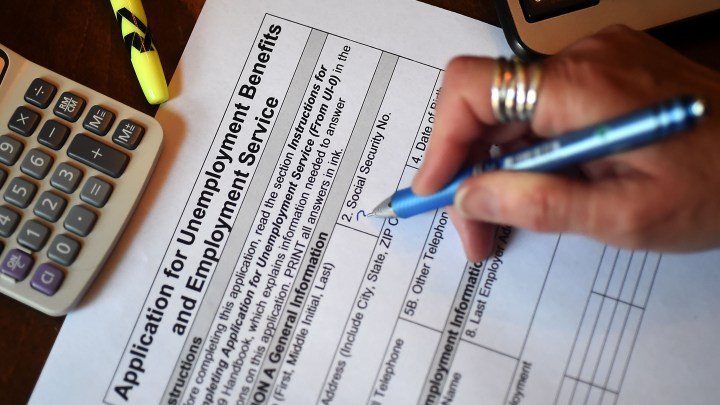
As some states forego federal pandemic benefits, workers weigh their options
As some states forego federal pandemic benefits, workers weigh their options

Maryam Randolph of Nashville, Tennessee, was laid off in early June. It had already been a rough year with an extended furlough early in the pandemic, given that her company essentially shut down most of its business. She worked in the corporate headquarters for a restaurant chain. Even after reopening locations, it decided to cut expenses by outsourcing the accounting department.
The extra $300 a week federal pandemic unemployment benefits gave her some real breathing room. With the state and federal money, it was $2,400 a month. The combined benefit at least covered her mortgage and her toddler’s daycare. Randolph said it’s an especially tough time to juggle mothering three kids and making a paycheck.
“I’m a little hesitant going into another job and still having to handle just the fallout of COVID,” she said.
But some state leaders are increasingly impatient with unemployed people taking their time, especially self-employed or “gig” workers — who usually don’t qualify for benefits. In Tennessee, they represent nearly two-thirds of those getting weekly checks.
Half of states, including Tennessee, have now decided to opt out of the extra $300 a week in unemployment benefits. Governors say they’re trying to help businesses fill a record 9 million openings. But jobs aren’t all that workers need coming out of the pandemic.
Randolph is looking for work that would be similar to what she’s done in the past. “I’m not going to go and work a fast food job,” she said. “I mean, I’ve been in accounting for a decade now.”
In Tennessee — alone — there are a quarter million jobs open, which is why Gov. Bill Lee said he was pulling out of the program July 3.
“I mean, what are the jobs?” Randolph asked.
Lee said everyone should be able to find a good fit.
“In many cases, the job openings match with the job skills of the unemployed,” he said in May. “And that’s part of what we used to make our decision going forward.”
Still, researchers at banking giant JPMorgan Chase say the rationale “looks like politics, rather than economics.” It’s mostly Republican governors cutting off the federal spigot.
During the pandemic, the country has expanded unemployment’s role. Marianne Wanamaker, who was on President Donald Trump’s Council of Economic Advisors, said it has served more as an “uncertainty” benefit.
“It’s helping you get from a time period where everything seems uncertain to some point in the future where we have more certainty about what our working and living conditions are going to look like,” she said.
The extra $300 a week is scheduled to run out nationwide in September. A few months early won’t make a big dent in the labor shortage, Wanamaker said, but it will send a signal that these states are eager to please businesses.
There’s a lot happening in the world. Through it all, Marketplace is here for you.
You rely on Marketplace to break down the world’s events and tell you how it affects you in a fact-based, approachable way. We rely on your financial support to keep making that possible.
Your donation today powers the independent journalism that you rely on. For just $5/month, you can help sustain Marketplace so we can keep reporting on the things that matter to you.












